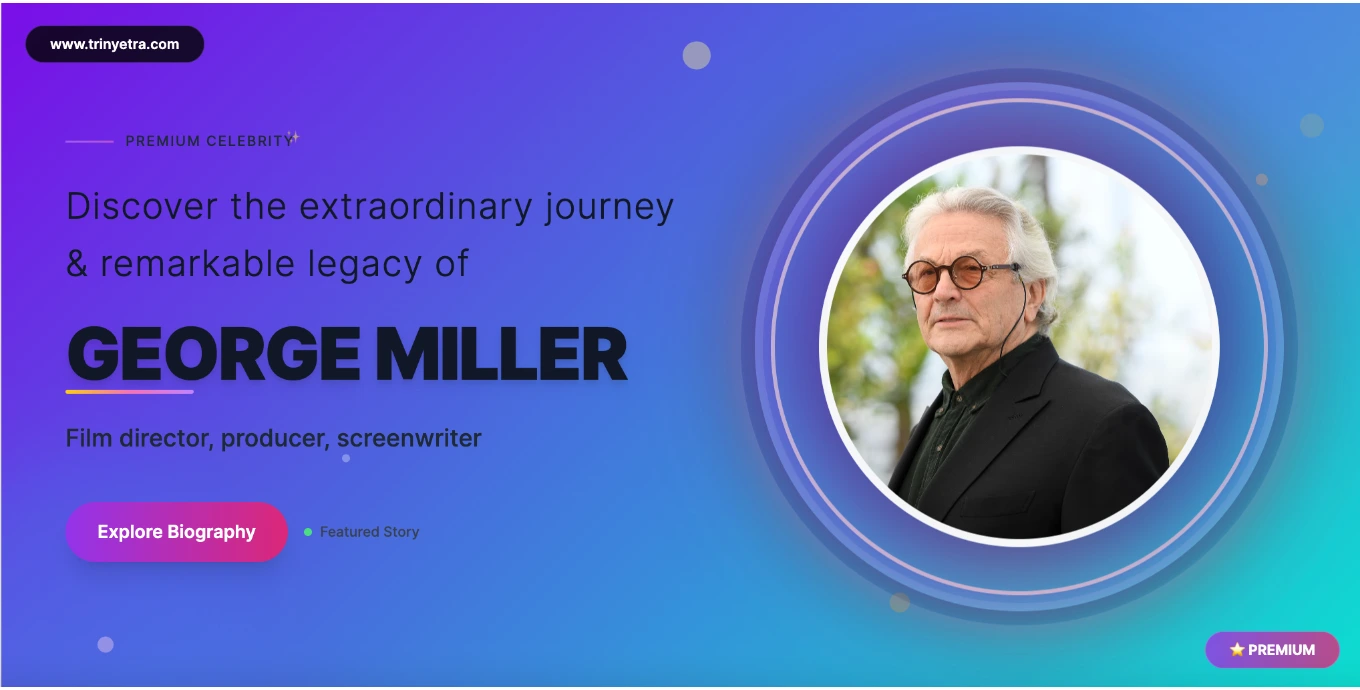 Hollywood
Hollywood
Wes Anderson Biography, Age, Net Worth, Height, Movies & Latest Updates
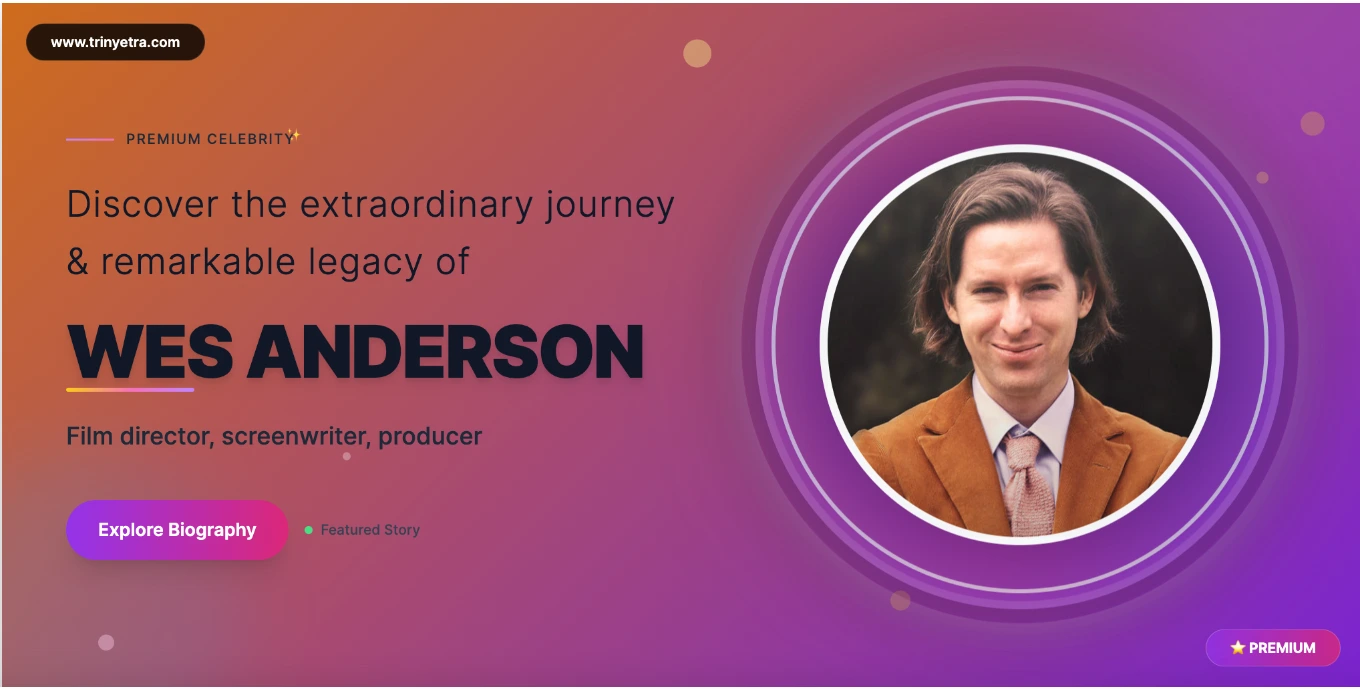
Wes Anderson worked in many superhit films. Know about Wes Anderson's biography, affairs, age, birthday, father's name, mother's name, religion, boyfriend, Date of Birth, family, relationship, husband, marriage, Show list, annual salary & net worth, awards, height, weight, body measurements, Controversies, new photos, and controversies.
Wes Anderson is an Oscar-winning American filmmaker with an estimated net worth of $50 million. He's currently 56 years old and lives in Paris with his partner Juman Malouf and their daughter Freya. Anderson recently won the Academy Award for Best Live Action Short Film for "The Wonderful Story of Henry Sugar" in 2024.
This renowned director is famous for his distinctive visual style featuring symmetrical compositions, carefully curated color palettes, and ensemble storytelling. His latest feature, "The Phoenician Scheme", premiered at the 2025 Cannes Film Festival, continuing his tradition of international recognition and critical acclaim.
| Real Name | Wesley Wales Anderson |
|---|---|
| Nick Name | Wes |
| Profession | Film Director, Screenwriter, Producer |
| Date of Birth | May 1, 1969 |
| Age | 56 years (as of 2025) |
| Birth Place | Houston, Texas, United States |
| Height | 6 feet 1 inch / 185 cm |
| Weight | Not publicly disclosed |
| Net Worth | $50 million (2025) |
| Marital Status | Long-term partner (Juman Malouf) |
| Nationality | American |
Table of Contents
Wes Anderson's Biography
Wes Anderson is famous as Wes and is a prominent figure in the independent film industry. He is renowned as a director, screenwriter, and producer and is considered one of the most distinctive auteur filmmakers in contemporary Hollywood.

|
Anderson's rise to fame began with his meticulous approach to filmmaking, characterized by symmetrical framing, lateral camera movements, and ensemble casts. His breakthrough came with "Rushmore" (1998), which established his reputation for blending melancholy and whimsy through stories of family dysfunction and youthful longing. The director's unique visual language incorporates purposeful color schemes, precise compositions, and storybook aesthetics that have influenced a generation of filmmakers.
Currently living in Paris since 2005, Anderson maintains his status as one of cinema's most celebrated auteurs. His films consistently premiere at major international festivals, particularly Cannes, where he's competed multiple times. The director's ability to create immersive worlds through production design, costume, and cinematography has earned him both critical acclaim and a devoted global following who appreciate his artistic vision and attention to detail.
Like other successful auteur directors such as Eddie Murphy Anderson and Robert Redford, Wes Anderson has carved a unique niche in the entertainment world through his distinctive storytelling approach and visual style.
Wes Anderson's Early Life & Education
Childhood & Family Background
Wesley Wales Anderson was born on May 1, 1969 in Houston, Texas. His father's name is Melver Leonard Anderson, who worked in advertising and public relations, and his mother's name is Texas Ann Anderson (née Burroughs), who worked as a realtor and archaeologist. Anderson is the middle child of three brothers - his elder brother, Mel, became a physician, while his younger brother, Eric Chase Anderson, is a writer and artist.
The Anderson family provided a creative and intellectually stimulating environment that would later influence Wes's artistic sensibilities. His parents' divorce when he was young became a recurring theme in many of his films, particularly evident in works like "The Royal Tenenbaums" and "The Squid and the Whale" (which he produced). Growing up in Houston exposed him to both urban sophistication and Texas culture, elements that would later appear in his early films "Bottle Rocket" and "Rushmore."
Educational Journey
Anderson completed his schooling at St. John's School in Houston, graduating in 1987. During his teenage years, he developed a passion for filmmaking, creating Super 8 short films that demonstrated his early interest in visual storytelling. His academic performance was solid, and he showed early signs of creative talent through his involvement in school theatrical productions and film projects.
He enrolled at the University of Texas at Austin, where he earned a Bachelor of Arts degree in Philosophy in 1991. During his college years, Anderson worked as a projectionist at a local cinema, which deepened his appreciation for film history and technique. It was at UT Austin that he met Owen Wilson, who would become one of his most important creative collaborators. Their friendship and shared interest in storytelling laid the foundation for Anderson's future career in filmmaking.
Wes Anderson's Personal Life
Relationships & Dating History
Wes Anderson is currently in a long-term relationship with writer and artist Juman Malouf. The couple has been together for several years and shares a daughter named Freya, born in 2016. Anderson tends to keep his personal life private, rarely discussing his relationships in interviews or public appearances, preferring to let his work speak for itself.
The director's approach to relationships mirrors his artistic sensibilities - thoughtful, deliberate, and deeply personal. His partnership with Malouf has provided stability and creative support, with both sharing interests in literature, visual arts, and cultural pursuits. Anderson has mentioned in interviews that becoming a father has influenced his perspective on storytelling, though he maintains his characteristic privacy about family matters.
Lifestyle & Personal Interests
Anderson is known for his meticulous and contemplative personality. He enjoys collecting art and books, writing, and traveling by train - a mode of transportation that frequently appears in his films. His favorite activities include research for production design, exploring museums, and spending time in cafes working on screenplays.
| Favorite Food | European cuisine, particularly French pastries |
|---|---|
| Favorite Color | Pastels, particularly salmon pink and mint green |
| Favorite Directors | François Truffaut, Akira Kurosawa, Hal Ashby |
| Favorite Music | British Invasion, Classical, French chanson |
| Hobbies | Book collecting, writing, art curation |
| Favorite Destination | Paris, India, Eastern Europe |
Since moving to Paris in 2005, Anderson has embraced European culture while maintaining his Texas roots. He's known for his distinctive personal style, often wearing tailored suits in muted colors that reflect the aesthetic sensibilities of his films. Anderson supports various cultural institutions and occasionally participates in film preservation efforts, demonstrating his commitment to cinema history and education.
Wes Anderson's Career Journey
Career Debut & Early Struggles
Wes Anderson started his career in 1994 with a short film version of "Bottle Rocket," created in collaboration with Owen Wilson. The project began as a 13-minute short that caught the attention of producer James L. Brooks, who helped fund the feature-length version. Anderson's journey began during his college years when he and Wilson developed ideas that would later become his signature themes of family dysfunction and youthful rebellion.
| Career Debut | |
|---|---|
| First Movie | Bottle Rocket (1996) |
| Director | Wes Anderson |
| Co-stars | Owen Wilson, Luke Wilson, James Caan |
| Role | Writer-Director |
| Box Office | $560,069 (Limited release) |
The early career phase was marked by financial constraints and the challenge of establishing a unique voice in independent cinema. "Bottle Rocket" received limited theatrical release but gained critical recognition, particularly from Martin Scorsese, who named it one of his favorite films of the 1990s. Anderson faced the typical struggles of independent filmmakers, including securing funding, finding distributors, and building an audience for his unconventional storytelling approach.
Despite commercial challenges, Anderson's commitment to his artistic vision attracted a core group of collaborators who would work with him throughout his career. This period established his reputation for perfectionism and attention to detail, qualities that would become hallmarks of his directorial style and contribute to his long-term success in the industry.
Major Success & Recognition
Anderson gained massive recognition with "The Royal Tenenbaums" (2001), which earned him an Academy Award nomination for Best Original Screenplay. This ensemble family drama became a cultural phenomenon, establishing him as a major voice in American independent cinema. His performance as a director was particularly praised for balancing comedy and pathos while creating a distinctive visual universe.
The success continued with films like "The Life Aquatic with Steve Zissou" (2004), "The Darjeeling Limited" (2007), and the animated "Fantastic Mr. Fox" (2009). His versatility across live-action and animation demonstrated his range while maintaining his signature aesthetic. "The Grand Budapest Hotel" (2014) became his biggest commercial success, earning over $174 million worldwide and receiving nine Academy Award nominations.

|
Anderson's current status includes being one of cinema's most recognizable auteurs with a global following. His recent projects, "Isle of Dogs" (2018), "The French Dispatch" (2021), and "Asteroid City" (2023) have maintained his position at major international festivals. The 2025 premiere of "The Phoenician Scheme" at Cannes continues his tradition of prestige filmmaking and confirms his ongoing relevance in contemporary cinema.
Wes Anderson's Net Worth & Financial Success
Wes Anderson has achieved remarkable financial success through his career in independent and arthouse cinema. As of 2025, his estimated net worth is $50 million, making him one of the most financially successful auteur directors in contemporary Hollywood.
| Net Worth (2025) | $50 million (approx.) |
|---|---|
| Annual Income | $3-5 million per project |
| Monthly Income | Variable based on project cycle |
| Per Movie Fee | $2-4 million as writer-director |
| Brand Endorsements | Limited commercial partnerships |
| Other Income Sources | American Empirical Pictures, residuals |
Anderson's wealth primarily comes from his writing, directing, and producing work across feature films and short projects. Unlike mainstream Hollywood directors, his income model relies more on artistic prestige and long-term residuals rather than massive upfront payments. His production company, American Empirical Pictures, provides additional revenue streams through development deals and producing partnerships.
Luxury Lifestyle & Assets
Anderson enjoys a refined lifestyle that reflects his artistic sensibilities and European residence. He owns property in Paris, where he has lived since 2005, and maintains connections to his Texas origins. His lifestyle choices prioritize quality and craftsmanship over ostentation, consistent with his film aesthetic.
| Houses | Paris, France - $2-3 million Occasional Texas properties |
|---|---|
| Cars | Volvo family vehicles Previously owned Volkswagen Scirocco 1985 Mercedes station wagon |
| Investments | Film production/American Empirical Pictures Art and book collections |
Wes Anderson's Physical Appearance & Style
| Height | 6 feet 1 inch / 185 cm |
|---|---|
| Weight | Not publicly disclosed |
| Body Type | Lean |
| Eye Color | Hazel |
| Hair Color | Light brown |
| Skin Tone | Fair |
| Distinctive Features | Thoughtful expression, refined bearing |
Wes Anderson is known for his tall, lean frame and thoughtful demeanor. He maintains his appearance through an active lifestyle that includes walking and regular travel. His style evolution over the years has reflected his artistic sensibilities, favoring tailored clothing in muted tones that mirror the aesthetic of his films.
Anderson's fashion sense emphasizes classic, well-tailored pieces, including corduroy and tweed suits, slim ties, and desert boots. His personal style aligns with the vintage-inspired, preppy aesthetics seen in his film characters. He often works with the same costume designers who create looks for his movies, maintaining consistency between his personal presentation and artistic vision.

|
Wes Anderson's Awards & Achievements
Wes Anderson has received numerous accolades for his outstanding contribution to cinema. His talent has been recognized both nationally and internationally through prestigious film festivals and industry organizations.
| Year | Award | Category | Movie/Work |
|---|---|---|---|
| 2024 | Academy Awards | Best Live Action Short Film | The Wonderful Story of Henry Sugar |
| 2015 | BAFTA Awards | Best Original Screenplay | The Grand Budapest Hotel |
| 2018 | Berlin International Film Festival | Silver Bear for Best Director | Isle of Dogs |
| 2015 | Writers Guild of America | Best Original Screenplay | The Grand Budapest Hotel |
| 2002 | Academy Awards | Best Original Screenplay (Nominated) | The Royal Tenenbaums |
Major Recognition & Honors
Anderson has achieved several milestone recognitions, including his first Academy Award win for "The Wonderful Story of Henry Sugar" in 2024. He was also honored with multiple Cannes Film Festival competition selections and has been recognized by critics' organizations worldwide. His contribution to independent cinema has been particularly appreciated by film scholars and industry professionals.
Beyond individual awards, Anderson has influenced contemporary filmmaking through his distinctive visual style and narrative approach. His films are frequently studied in film schools, and his work has been the subject of academic papers and exhibitions. The consistency of his artistic vision across multiple decades has earned him recognition as one of the most important auteur directors of his generation.
Wes Anderson's Latest News & Upcoming Projects
Current Projects (2025)
Currently, Wes Anderson has just premiered "The Phoenician Scheme" at the 2025 Cannes Film Festival, which was released in the United States on May 30, 2025. This latest feature continues his tradition of ensemble storytelling and meticulous visual composition. Fans and critics are particularly excited about this return to live-action filmmaking following his animated successes.
| Project | Role | Director | Release Date | Status |
|---|---|---|---|---|
| The Phoenician Scheme | Writer-Director | Wes Anderson | May 30, 2025 | Released |
| Roald Dahl Adaptations | Writer-Director | Wes Anderson | Netflix 2023 | Completed |
Recent News & Updates
Anderson made headlines in March 2024 by winning his first Academy Award for Best Live Action Short Film with "The Wonderful Story of Henry Sugar." This recognition marked a significant milestone in his career, finally earning him Oscar recognition after multiple nominations. The win was particularly meaningful as it recognized his work adapting Roald Dahl's stories, a project that combined his love of literary adaptation with his signature visual style.
Recent interviews have focused on his continued residence in Paris and how European culture influences his storytelling. Anderson has expressed interest in exploring different genres while maintaining his distinctive aesthetic approach. Industry insiders suggest he's developing several projects simultaneously, though he maintains his characteristic secrecy about specific details until official announcements.
Trending 2025 News Snippets
• May 2025: "The Phoenician Scheme" receives standing ovation at Cannes premiere, with critics praising Anderson's return to ensemble storytelling
• March 2025: Anderson begins pre-production on unnamed project featuring longtime collaborators Bill Murray and Tilda Swinton
• February 2025: Netflix announces extended partnership for additional Roald Dahl adaptations following Henry Sugar's Oscar success
• January 2025: Anderson's daughter Freya makes rare public appearance at Paris film screening, with Bill Murray serving as her godfather
Wes Anderson's Controversies & Challenges
Like many filmmakers, Wes Anderson has faced his share of challenges and occasional controversies throughout his career. The most notable discussion centered around "The Darjeeling Limited" (2007), where some critics debated cultural representation and questioned whether Anderson's portrayal of India constituted cultural appropriation or artistic homage.
Academic critics and cultural commentators engaged in debates about Anderson's approach to depicting Indian culture, spirituality, and social dynamics through the lens of privileged American characters. While some argued that the film perpetuated orientalist stereotypes, others defended it as a thoughtful exploration of American characters confronting different cultural contexts. Anderson addressed these concerns in interviews by emphasizing his respect for Indian cinema and culture, though the discussion highlighted broader questions about cultural representation in international filmmaking.
Anderson has generally maintained a reputation for professionalism and artistic integrity, with most industry challenges relating to the practical demands of his perfectionist approach to filmmaking. His meticulous attention to detail sometimes extends to shooting schedules and budgets, though producers continue working with him because of his consistent quality and commercial viability.
Wes Anderson's Interesting Facts & Trivia
Here are some fascinating and lesser-known facts about Wes Anderson that showcase his unique personality and creative journey:
- Anderson originally studied philosophy at the University of Texas, which influences the philosophical undertones in many of his films.
- He has a hidden talent for production design and often sketches detailed storyboards that serve as blueprints for his signature visual style.
- His first job in cinema was working as a projectionist during college, which deepened his appreciation for film history and technique.
- Anderson is fluent in French and has been living in Paris since 2005, which has influenced the European sensibilities in his later films.
- He has a particular fascination with trains and rail travel, which appears prominently in "The Darjeeling Limited" and other works.
- Creating detailed dollhouse-like sets is something he approaches with architectural precision, often building practical miniatures for his films.
- Anderson was discovered through his short film "Bottle Rocket," which impressed Martin Scorsese and James L. Brooks enough to support the feature version.
- He has never made a sequel, preferring to explore new stories and characters while maintaining his distinctive style.
- Anderson secretly collects vintage books and art pieces that often inspire visual elements in his production designs.
- His favorite collaborator to work with is cinematographer Robert Yeoman, who has shot all of his live-action features since "Bottle Rocket."
- Anderson owns a collection of vintage Criterion Collection films and considers himself a student of cinema history.
- He once worked extensively with stop-motion animation for "Fantastic Mr. Fox" and "Isle of Dogs," learning traditional techniques from masters in the field.
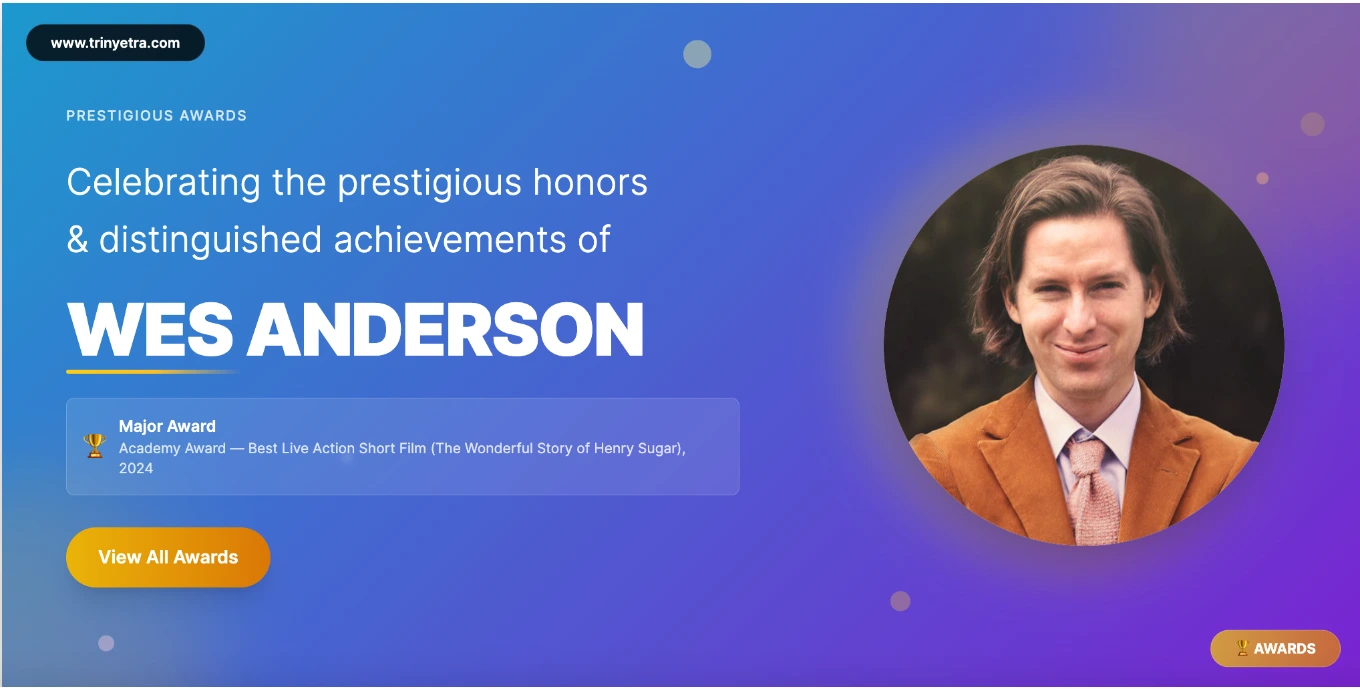
|
Wes Anderson's Social Media & Fan Following
Wes Anderson maintains a minimal personal social media presence, preferring to communicate through official studio channels and press representatives. Unlike many contemporary filmmakers, he doesn't actively manage Instagram, Twitter, or other social platforms; instead, he focuses on his craft and lets his films serve as his primary form of public communication.
| Platform | Handle | Followers | Content Type |
|---|---|---|---|
| No official account | N/A | Fan accounts and unofficial content | |
| Twitter/X | No official account | N/A | Press and industry mentions |
| Studio pages only | N/A | Official film promotions | |
| Official Website | American Empirical Pictures | N/A | Production company updates |
Anderson's social media strategy reflects his private personality and old-school approach to filmmaking. His communication occurs primarily through film festival appearances, press interviews, and official studio announcements. Despite his personal absence from social platforms, his work generates significant online discussion and fan engagement through unofficial channels and film community forums.
The director's films consistently trend on social media during premieres and awards seasons, with fans sharing visual analyses, behind-the-scenes content, and artistic interpretations of his work. His aesthetic has influenced countless social media creators who emulate his symmetrical compositions and color schemes in their own content.
Frequently Asked Questions About Wes Anderson
Personal Information
What is Wes Anderson's real age and birth date?
Wes Anderson was born on May 1, 1969, and is currently 56 years old as of 2025.
What is Wes Anderson's height and weight?
Wes Anderson stands 6 feet 1 inch (185 cm) tall. His weight is not publicly disclosed.
Is Wes Anderson married or in a relationship?
Wes Anderson is in a long-term relationship with writer and artist Juman Malouf. They have been together for several years and share a daughter named Freya, born in 2016. They are not officially married but maintain a committed partnership.
Does Wes Anderson have any children?
Yes, Wes Anderson has one daughter named Freya, born in 2016, with his partner Juman Malouf. Bill Murray serves as Freya's godfather.
What is Wes Anderson's educational background?
Wes Anderson graduated from St. John's School in Houston in 1987 and earned a Bachelor of Arts degree in Philosophy from the University of Texas at Austin in 1991.
Career & Professional Life
How did Wes Anderson start his career?
Anderson started his career with a 13-minute short film version of "Bottle Rocket" in 1994, created with Owen Wilson while they were friends at the University of Texas. The short caught the attention of producer James L. Brooks, who helped fund the feature-length version released in 1996.
What are Wes Anderson's most successful movies?
Anderson's biggest hits include "The Royal Tenenbaums" (2001), "The Grand Budapest Hotel" (2014), which earned over $174 million worldwide, "Fantastic Mr. Fox" (2009), "Isle of Dogs" (2018), and "Moonrise Kingdom" (2012). His most recent success is "The Wonderful Story of Henry Sugar," which won him an Oscar.
What are Wes Anderson's upcoming projects in 2025?
Anderson recently premiered "The Phoenician Scheme" at the 2025 Cannes Film Festival, which was released in the U.S. on May 30, 2025. He's also reportedly developing additional projects with longtime collaborators, though specific details remain undisclosed.
How much does Wes Anderson earn per movie?
Anderson reportedly earns between $2-4 million per film as writer-director, with additional income from producing credits. His earnings vary based on budget size and backend participation agreements.
Financial & Lifestyle
What is Wes Anderson's net worth in 2025?
As of 2025, Wes Anderson's estimated net worth is $50 million, earned through his successful career as a writer, director, and producer of critically acclaimed films.
What cars does Wes Anderson own?
Anderson has mentioned owning Volvo family vehicles and previously owned a Volkswagen Scirocco in high school and a 1985 Mercedes station wagon. He prioritizes practical, well-designed vehicles over luxury sports cars.
Where does Wes Anderson live?
Anderson has lived in Paris, France, since 2005, where he maintains his primary residence with his partner Juman Malouf and daughter Freya. He occasionally returns to Texas for family visits and project research.
What brands does Wes Anderson endorse?
Anderson maintains limited commercial partnerships, preferring to focus on artistic projects. He occasionally collaborates with fashion brands through his film costume designers and has worked with luxury hotels for location shoots, but avoids traditional celebrity endorsement deals.
Personal Interests & Facts
What is Wes Anderson's favorite food?
Anderson enjoys European cuisine, particularly French pastries and café culture. He's often seen working in Parisian cafés and has mentioned appreciating well-prepared, simple foods that reflect his aesthetic sensibilities.
What is Wes Anderson's creative process?
Anderson maintains his distinctive style through meticulous pre-production planning, detailed storyboards, and extensive collaboration with the same core crew members. He spends months on production design and color coordination before filming begins.
What charities does Wes Anderson support?
Anderson quietly supports film preservation efforts and cultural institutions, particularly those focused on cinema education. He occasionally participates in film festival fundraising events and supports arts education programs.
Has Wes Anderson won any major awards?
Yes, Anderson won the Academy Award for Best Live Action Short Film for "The Wonderful Story of Henry Sugar" in 2024. He also won a BAFTA for Best Original Screenplay for "The Grand Budapest Hotel" and the Silver Bear for Best Director at Berlin for "Isle of Dogs."
Filmmaking & Style
What makes Wes Anderson's films distinctive?
Anderson's films are known for symmetrical compositions, lateral camera movements, carefully curated color palettes, ensemble casts, and themes exploring family dysfunction and nostalgia. His visual style creates immersive, storybook-like worlds.
Who are Wes Anderson's regular collaborators?
Anderson frequently works with actors Bill Murray, Owen Wilson, Luke Wilson, Jason Schwartzman, Tilda Swinton, and Willem Dafoe. His key crew includes cinematographer Robert Yeoman and composer Mark Mothersbaugh.
How long does it take Wes Anderson to make a film?
Anderson typically spends 2-3 years on each project from initial concept to final release, with extensive pre-production periods dedicated to production design, storyboarding, and location preparation.
What influenced Wes Anderson's visual style?
Anderson draws inspiration from directors like François Truffaut, Hal Ashby, and Akira Kurosawa, as well as children's book illustrations, museum exhibits, and mid-century design aesthetics.
Social Media & Public Life
What is Wes Anderson's Instagram username?
Anderson does not maintain personal social media accounts. Official updates about his work are shared through studio channels and his production company, American Empirical Pictures.
Why doesn't Wes Anderson use social media?
Anderson prefers traditional forms of communication and focuses on his craft rather than social media engagement. He believes his films should speak for themselves and maintains privacy about his personal life.

|
Has Wes Anderson been in any major controversies?
The main discussion around Anderson's work involved cultural representation in "The Darjeeling Limited," where some critics debated his portrayal of Indian culture. Anderson addressed these concerns respectfully, emphasizing his admiration for Indian cinema and culture.
Family & Background
What is Wes Anderson's family background?
Anderson comes from a middle-class Houston family. His father, Melver Leonard Anderson, worked in advertising and public relations, while his mother, Texas Ann Anderson, worked as a realtor and archaeologist.
Where was Wes Anderson born?
Anderson was born in Houston, Texas, on May 1, 1969, and spent his childhood in Texas before attending the University of Texas at Austin.
What is Wes Anderson's zodiac sign?
Born on May 1st, Anderson's zodiac sign is Taurus, which some fans suggest explains his methodical, perfectionist approach to filmmaking and attention to aesthetic details.
How did Wes Anderson meet his frequent collaborators?
Anderson met Owen and Luke Wilson at the University of Texas at Austin. Their friendship and shared creative interests led to the collaboration that launched his career with "Bottle Rocket."
What languages does Wes Anderson speak?
Anderson speaks English natively and is fluent in French, which has been helpful since moving to Paris in 2005. His French fluency has influenced some dialogue and cultural references in his later films.
Recent Projects & Future
What was special about Wes Anderson's Oscar win?
Anderson's 2024 Oscar win for "The Wonderful Story of Henry Sugar" was his first Academy Award after multiple nominations. The win recognized his adaptation of Roald Dahl's work and his mastery of short-form storytelling.
Will Wes Anderson make more Roald Dahl adaptations?
Following the success of his Roald Dahl short films, Anderson has announced plans for additional adaptations in partnership with Netflix, though specific titles and release dates haven't been confirmed.
What themes does Wes Anderson explore in his films?
Anderson's films consistently explore themes of family dysfunction, childhood innocence lost, nostalgia, class differences, and the search for belonging. His characters often struggle with emotional connections and personal identity.
How has becoming a father influenced Wes Anderson's work?
Anderson has mentioned that having daughter Freya has deepened his understanding of childhood perspectives and family dynamics, though he maintains characteristic privacy about how parenthood specifically influences his creative choices.
What can fans expect from Wes Anderson's future projects?
While Anderson keeps future projects confidential until official announcements, industry insiders suggest he continues exploring ensemble storytelling with his regular collaborators while potentially expanding into new genres within his distinctive aesthetic framework.
Related Articles
If you enjoyed reading about Wes Anderson, you might also be interested in learning about these other popular filmmakers and collaborators:
Explore the journeys of remarkable individuals who continue to inspire across industries and cultures with their unique contributions.
- Robert Redford Biography, Age, Net Worth, Height, Movies & Latest Updates
- Eddie Murphy Biography, Age, Net Worth, Height, Movies & Latest Updates
- Colin Jost Biography, Age, Net Worth, Height, Movies & Latest Updates
- Natalie Portman Biography, Age, Net Worth, Height, Movies & Latest Updates
- Marisa Tomei Biography, Age, Net Worth, Height, Movies & Latest Updates
- Naomi Watts Biography, Age, Net Worth, Height, Movies & Latest Updates
- Rob McElhenney Biography, Age, Net Worth, Height, Movies & Latest Updates
- Robert Eggers Biography, Age, Net Worth, Height, Movies & Latest Updates
- Jacob Batalon Biography, Age, Net Worth, Height, Movies & Latest Updates
- Jacob Elordi Biography, Age, Net Worth, Height, Movies & 2025 Updates
- Chace Crawford Biography, Age, Net Worth, Height, Movies & Latest Updates
- Jack Quaid Biography, Age, Net Worth, Height, Movies & Latest Updates
- Taylor Swift Biography, Age, Net Worth, Height, Movies & 2025 Updates
- Jeremy Allen White Biography, Age, Net Worth, Height, Movies & 2025 Updates
- Karl Urban Biography, Age, Net Worth, Height, Movies & Latest Updates
- Blake Lively Biography, Age, Net Worth, Height, Movies & 2025 Updates
- Riki Lindhome Biography, Age, Net Worth, Height, Movies & 2025 Updates
- Sandra Bullock Biography, Age, Net Worth, Height, Movies & 2025 Updates
For more celebrity biographies, visit our complete celebrities section.

Jean Smart Biography, Age, Net Worth, Height, Movies & L...

Selena Gomez Biography, Age, Net Worth, Height, Movies &...

Russell Crowe Biography, Age, Net Worth, Height, Movies ...

Katherine Langford Biography, Age, Net Worth, Height, Mo...

Kaley Cuoco Biography, Age, Net Worth, Height, Movies & ...

Amanda Seyfried Biography, Age, Net Worth, Height, Movie...

Jack Antonoff Biography, Age, Net Worth, Height, Career ...

Ed Sheeran Biography, Age, Net Worth, Height, Songs & La...

Gigi Hadid Biography, Age, Net Worth, Height, Boyfriend ...
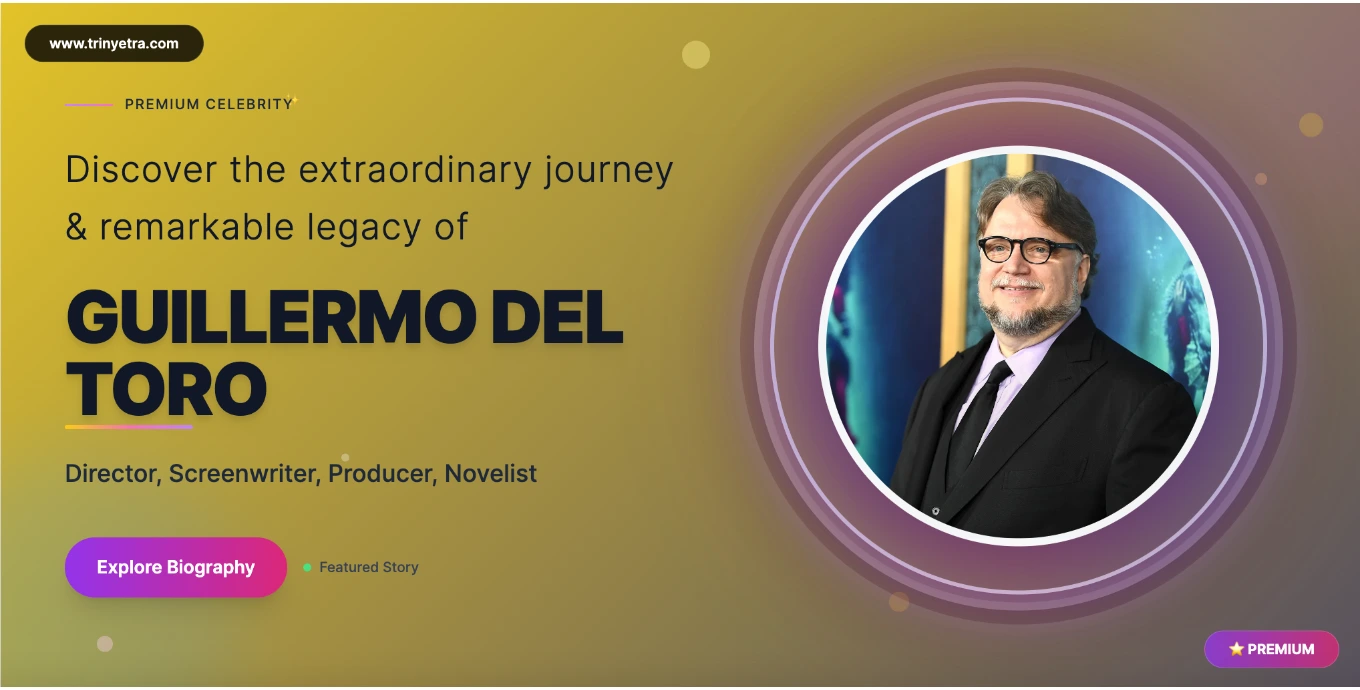
Guillermo del Toro Biography, Age, Net Worth, Height, Mo...

Emma Roberts Biography, Age, Net Worth, Height, Movies &...
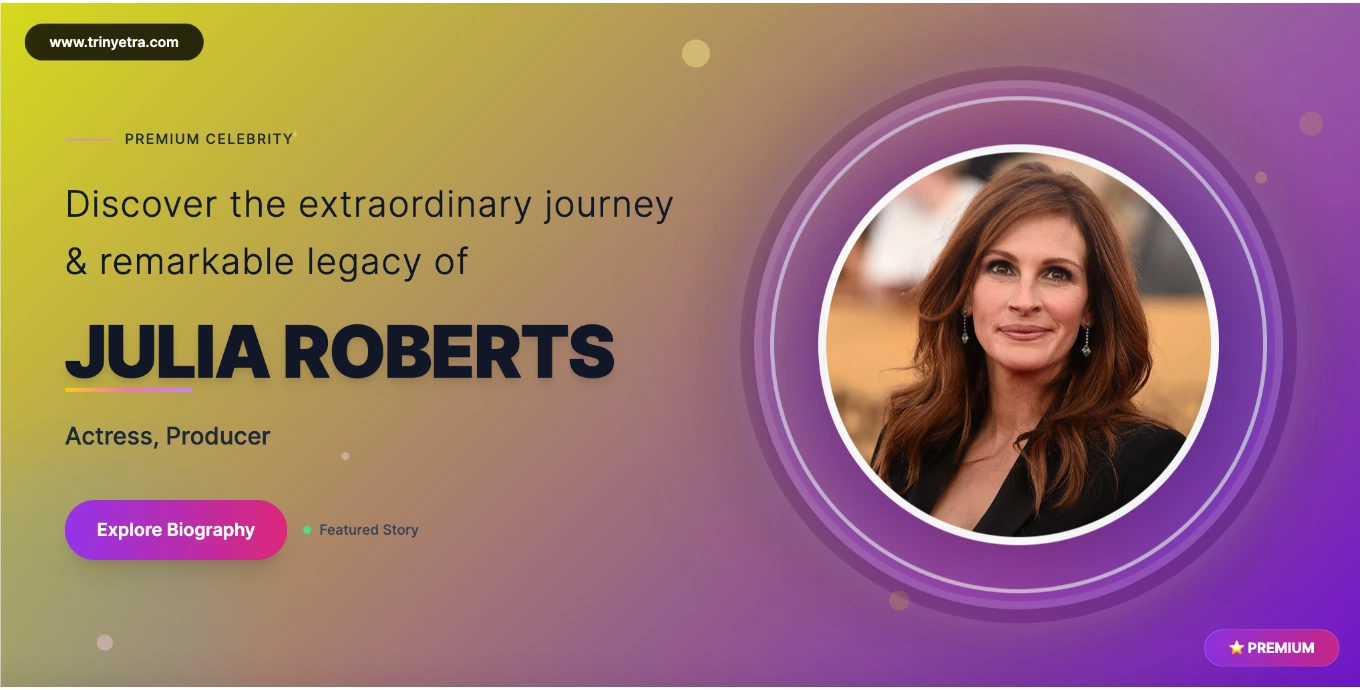
Julia Roberts Biography, Age, Net Worth, Height, Movies ...
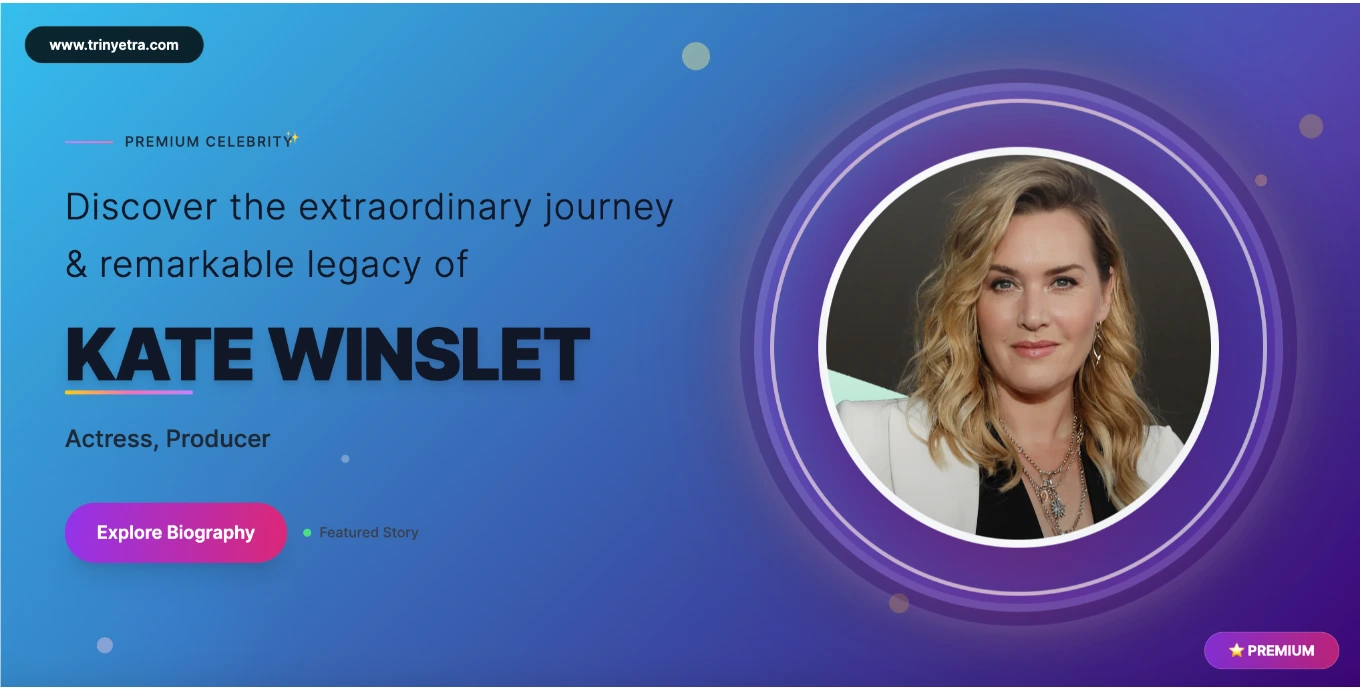
Kate Winslet Biography, Age, Net Worth, Height, Movies &...
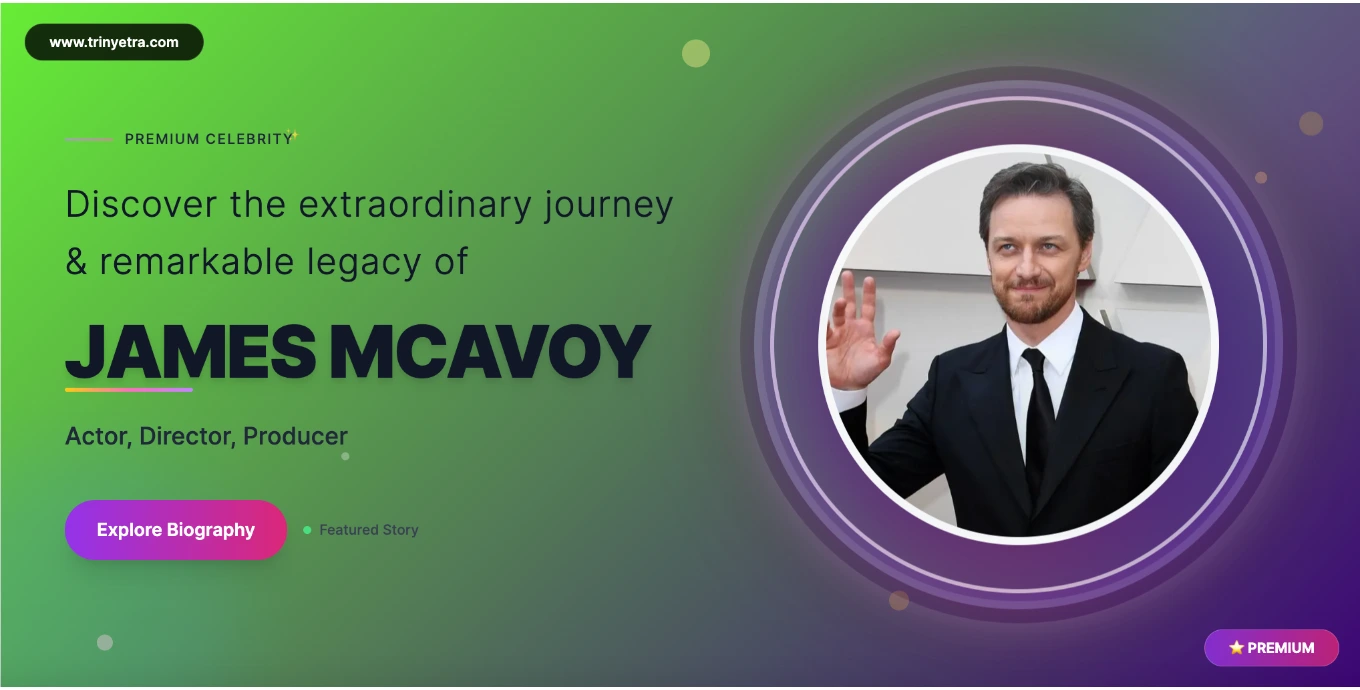
James McAvoy Biography, Age, Net Worth, Height, Movies &...
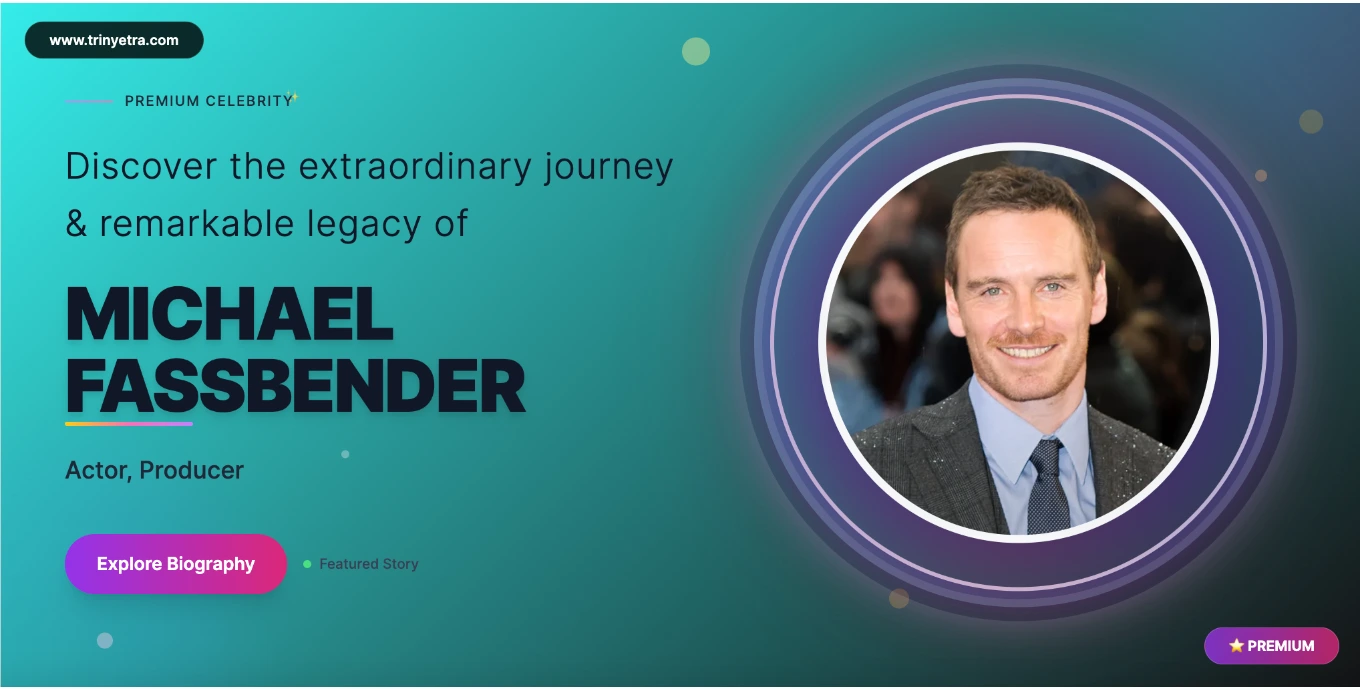
Michael Fassbender Biography, Age, Net Worth, Height, Mo...
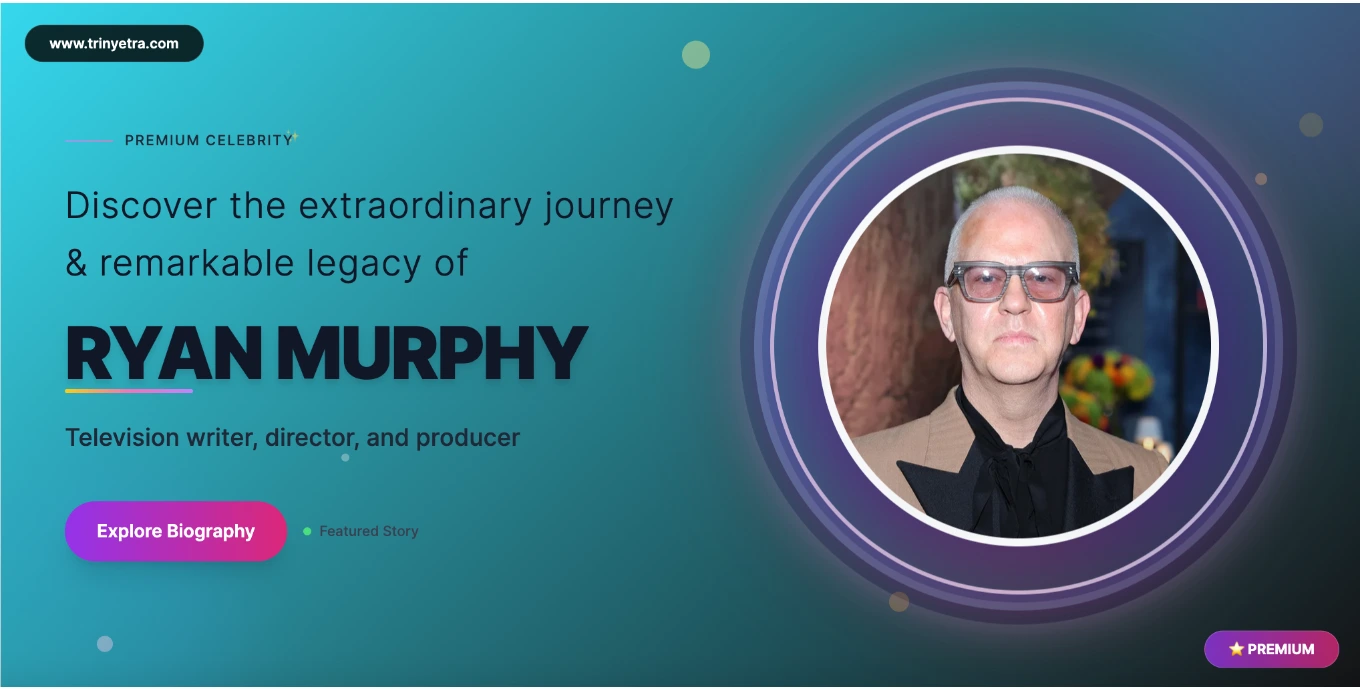
Ryan Murphy Biography, Age, Net Worth, Shows, Movies & L...

Randall Park Biography, Age, Net Worth, Height, Movies &...

Jennifer Lawrence Biography, Age, Net Worth, Height, Mov...
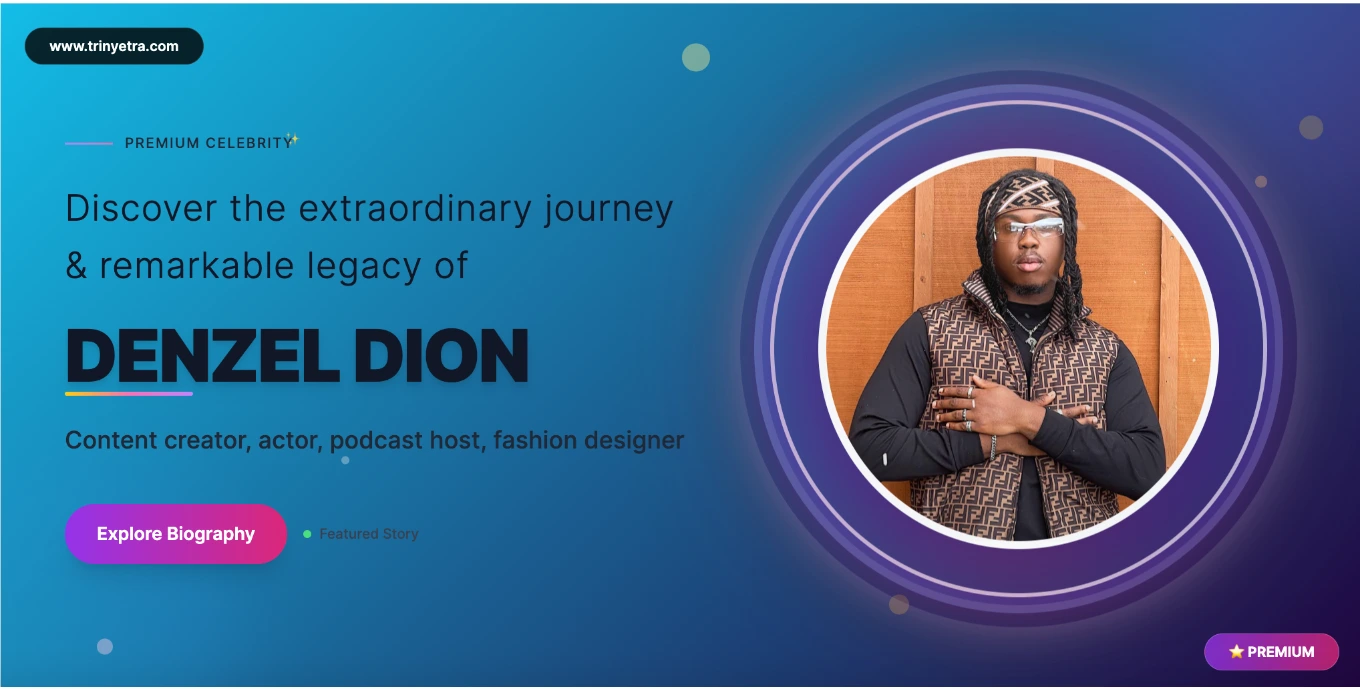
Denzel Dion Biography, Age, Net Worth, Height, YouTube &...
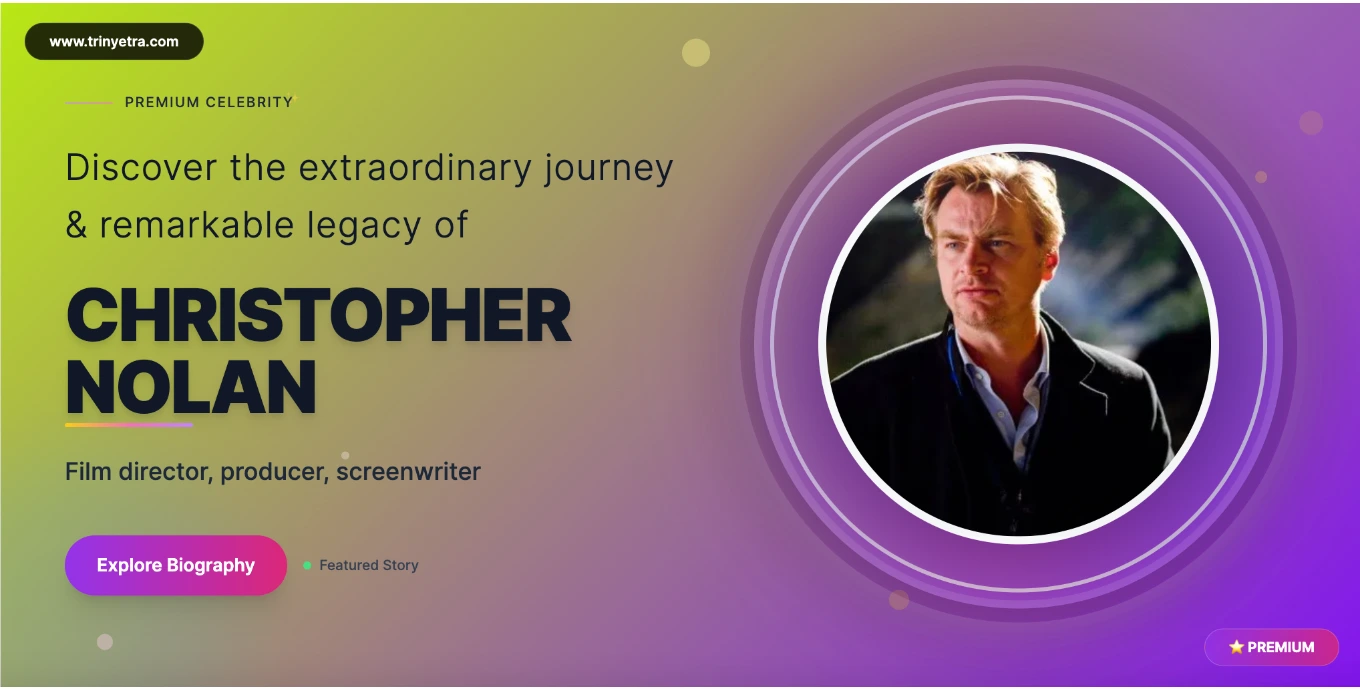
Christopher Nolan Biography, Age, Net Worth, Height, Mov...

Emma Stone Biography, Age, Net Worth, Height, Movies & F...
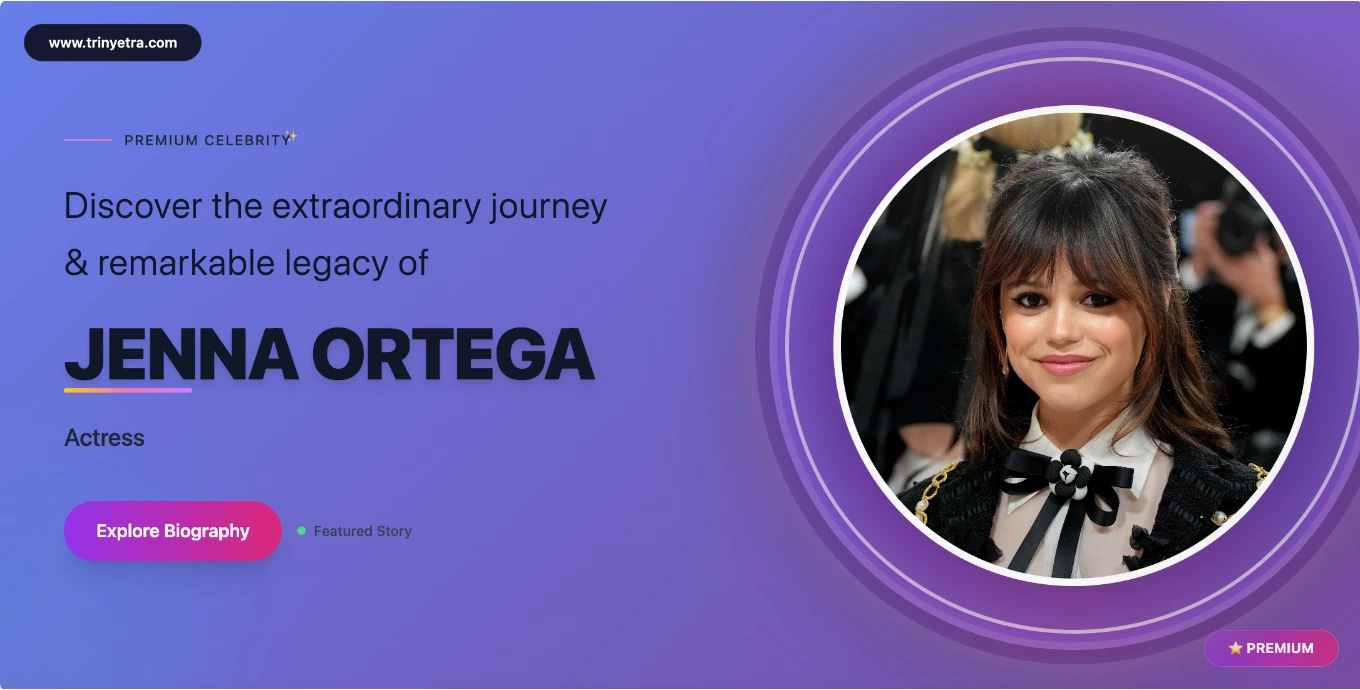
Jenna Ortega Biography, Age, Net Worth, Height, Movies &...

Zendaya Biography, Age, Net Worth, Height, Movies & Fact...
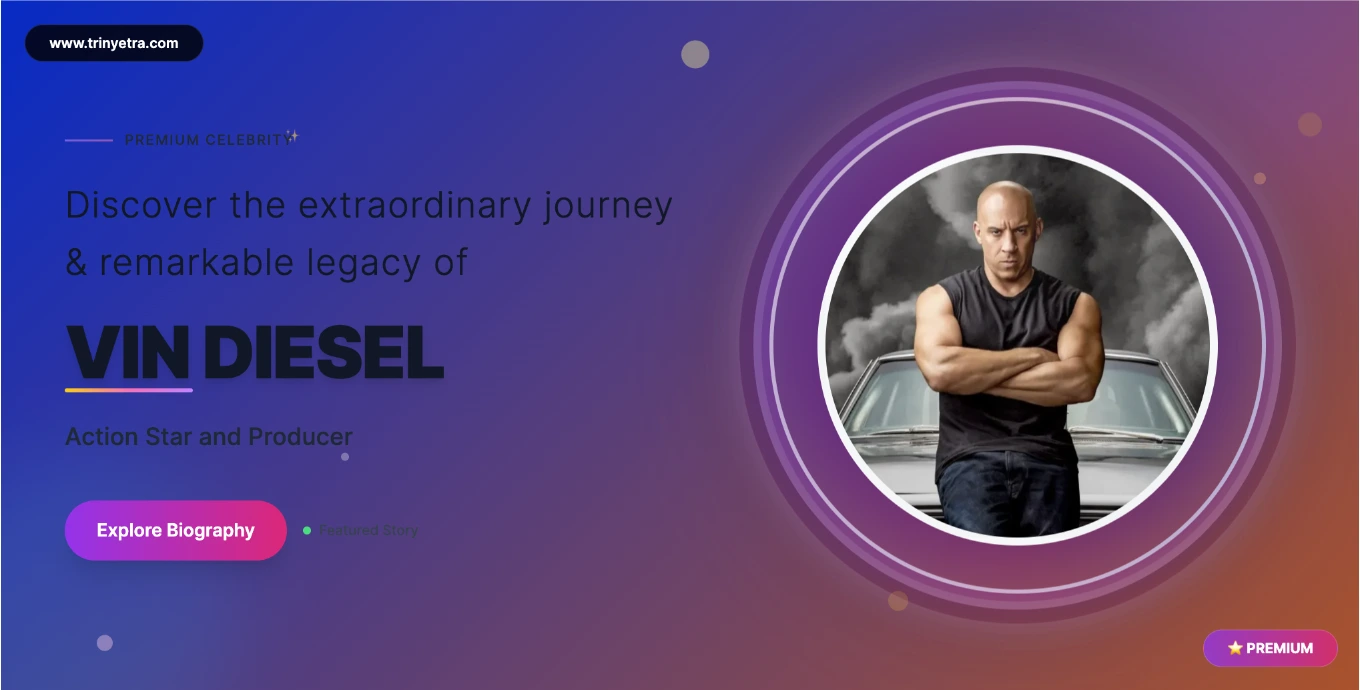
Vin Diesel Biography, Age, Net Worth, Height, Movies & F...
